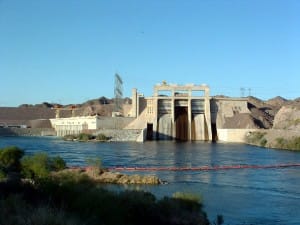Southwest Water Wars: 8 Things To Know


Stop scapegoating agriculture. Sure, agriculture in the Southwest uses lots of water. It’s also where much of the nation’s food comes from due to multiple growing seasons a year. If those areas grow less, prices for food will increase. Farmers do try to conserve water. Can they use even less water? Sure, but so can everyone else.
Aging water infrastructures are leaky. California water systems lose an average of 10% of their water to leakage, with some as high as 30%. In an era of ever-increasing water scarcity, this is unacceptable. The water systems need to be repaired and upgraded.
Everyone needs to conserve. If you live in an arid or semi-arid area, the era of lush green lawns and multiple golf courses nearby is coming to an end. The Southwest had a bountiful few decades where the water supply seemed endless. Those days are vanishing. Deal with it.
There is too little water for too many people. This is the core issue. It’s not that the California salmon fishing industry is Satan Incarnate while Central Valley farmers are getting shortchanged (or vice versa, depending on your viewpoint) but that an ever-growing population demands more water than is available. New England doesn’t have water wars. The reason is simple. They have lots of water.
The problems are regional and cannot be completely settled within a state. Sure, battles over Sacramento Delta water are internal to California. But its ever-increasing thirst for Colorado River water isn’t. Regional problems require regional solutions.
Desalination is not a panacea. Gosh, some say, let’s just build dozens of desalination plants. Then we will have lots of water. Well, desalination plants are quite expensive and require large amounts of electricity. Did I mention that power generation is the second largest user of water in the Southwest?
Renegotiate the Colorado River Compact. Water allocation from the Colorado is still apportioned based on a 1922 agreement. The population then was tiny in comparison to now. Everyone agrees the Colorado River Compact is a dinosaur but no one wants change for fear of ending up with less water. But events and drought may force change regardless.
Expect and plan for change. There are some indications that the past 150 years in the Southwest were unusually wet. If so, and it reverts to the norm, then there will be substantially less water available. The Anasazi thrived in the Southwest for hundreds of years and were at their peak when several decade-long droughts destroyed their civilization. Just saying…


